Browse the Collection
Browsing 6 items in our archive
Filters: College student newspapers and periodicals
Segregation
, Spencer, Aaron, Bethune, Mary McLeod, 1875 - 1955 Clear filters
-
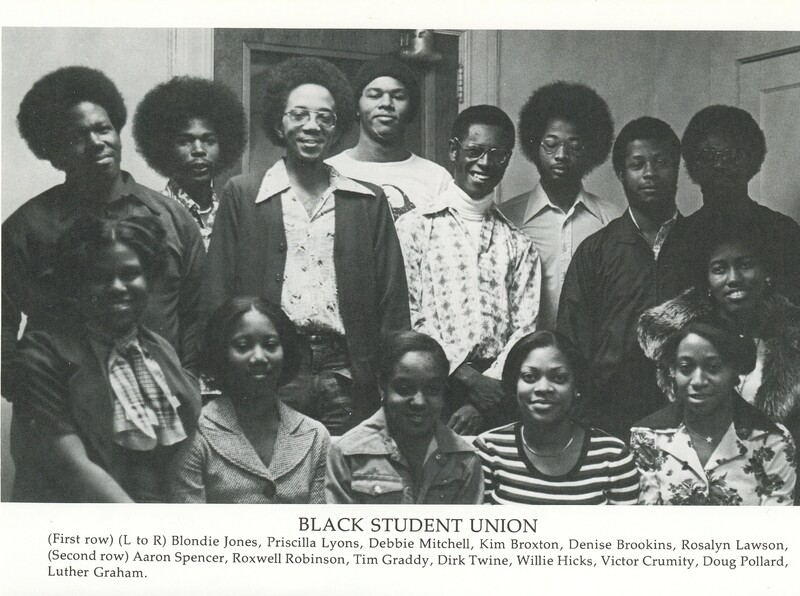 Rollins College | Image
Rollins College | ImageBlack Student Union, 1975-1976
Fourteen Black Student Union members pose for their student organization’s yearbook photograph. (First row, left to right): Blondie Jones, Priscilla Lyons, Debbie Mitchell, Kim Broxton, Denise Brookins, Rosalyn Lawson. (Second row, left to right): Aaron Spencer, Roxwell Robinson, Tim Graddy, Dirk Twine, Willie Hicks, Victor Crumity, Doug Pollard, Luther Graham.Learn more -
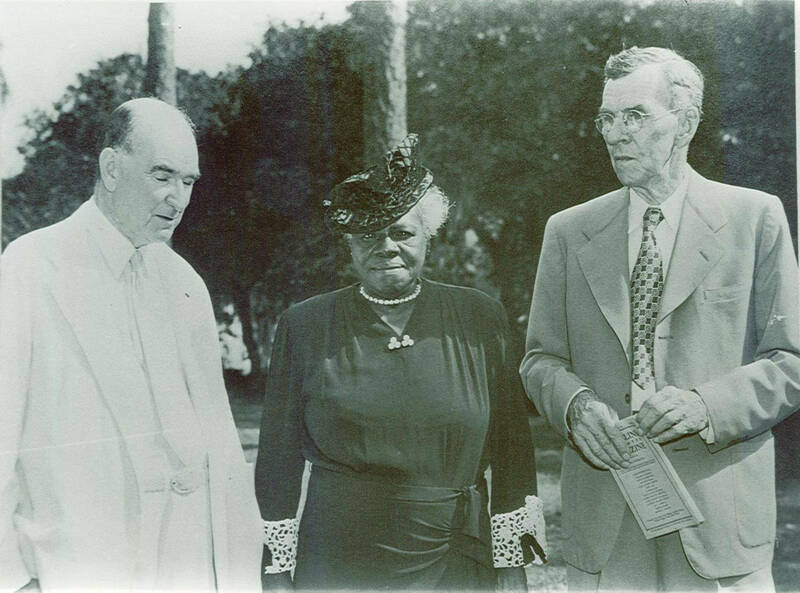 Rollins College | Image
Rollins College | ImageHamilton Holt, Mary McLeod Bethune, and Edwin Osgood Grover
President Hamilton Holt; Mary McLeod Bethune, President Emerita of Bethune-Cookman College; and Professor of Books Edwin Osgood Grover at the 1949 Animated Magazine.Learn more -
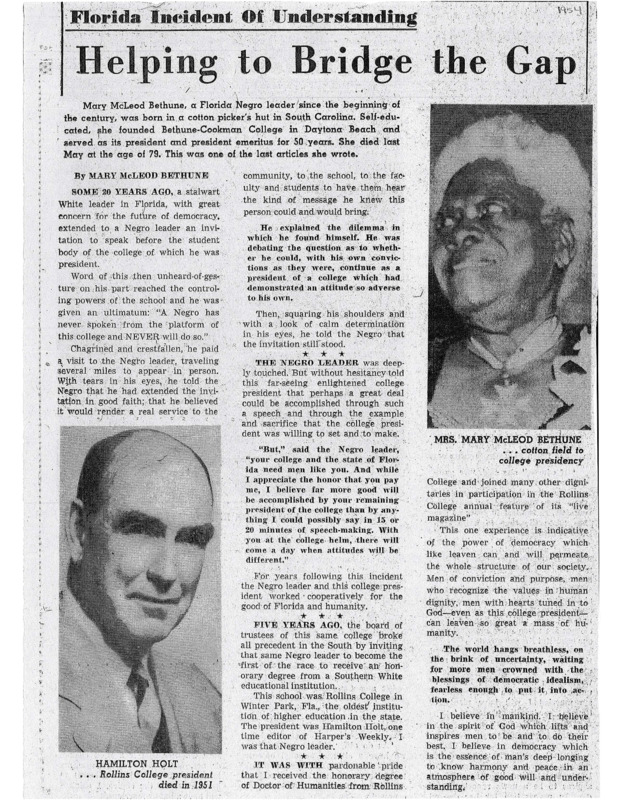 Rollins College | Text
Rollins College | TextHelping to Bridge the Gap
This article, written by Mary McLeod Bethune, discusses her friendship with President Hamilton Holt. It outlines the path of acceptance of African Americans at Rollins College, and her hope for further acceptance and integration in the future. Circa 1955-1956Learn more -
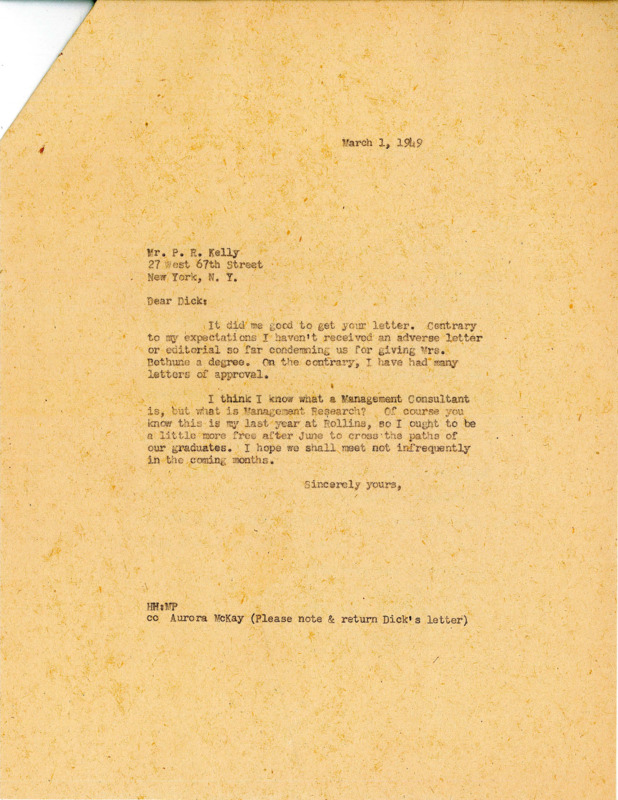 Rollins College | Text
Rollins College | TextLetter from Hamilton Holt to Philip R. Kelly, 1949
President Hamilton Holt writes to alumnus Dick Kelly about public support for awarding an honorary degree to civil rights leader and educator Mary McLeod Bethune.Learn more -
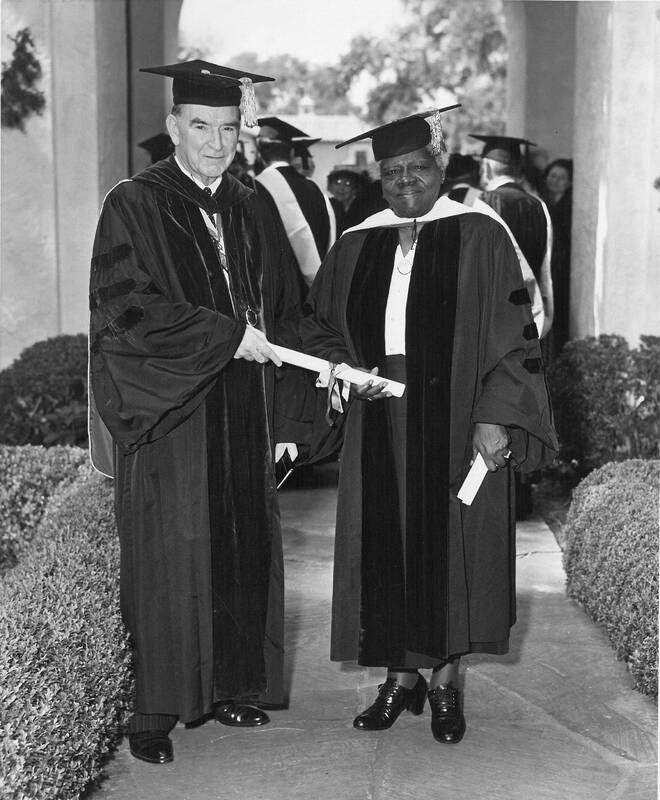 Rollins College | Image
Rollins College | ImageMary McLeod Bethune Receives an Honorary Degree from Rollins, 1949
Hamilton Holt awarding Mary McLeod Bethune, President Emerita of Bethune-Cookman College, with an honorary degree of Doctor of Humanities.This is the first honorary degree given to an African American by an institution of higher education in the South.Learn more -
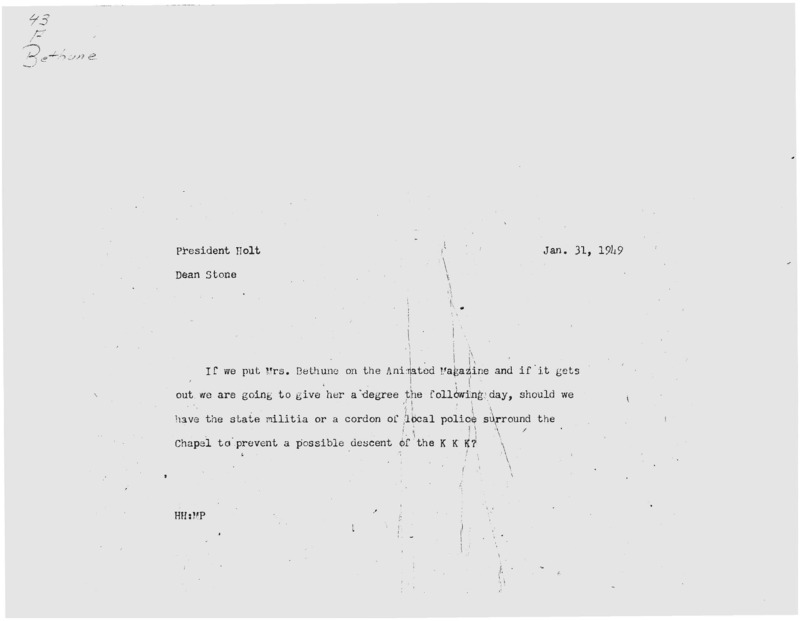 Rollins College | Text
Rollins College | TextMemorandum from Hamilton Holt to Dean Wendell Stone, 1949
Hamilton Holt expresses concern that the announcement of Mary McLeod Bethune's honorary degree would cause protesting and interference from the KKK. His fears proved to be unfounded, but facing violence was a real possibility.Learn more
